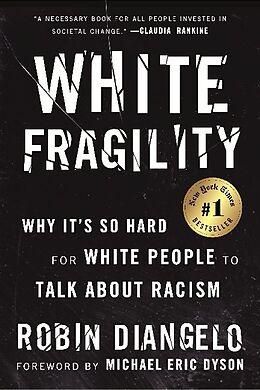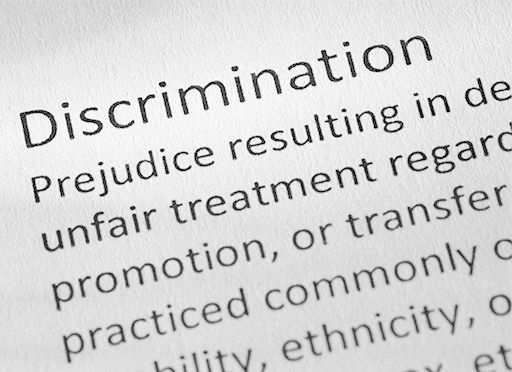All white Americans are racists, according to sociologist Robin DiAngelo. In White Fragility, she explores the compelling reasons why white progressives, against their own convictions, continue to perpetrate racial injustices and resist necessary conversations about race.

A Good Antiracist Is Hard to Find
After the police killing of George Floyd in Minneapolis on May 25, 2020, Americans poured into the streets in protests and solidarity. At the same time, seeking to educate themselves about the United States’ seemingly intractable entanglement with racism, Americans also pored over books. At least, they purchased books in droves – histories, analyses, novels and even children’s picture books about racism and white superiority – driving some to the top of bestseller lists. One book led them all, becoming almost impossible to find in print during the weeks of the protests: Robin DiAngelo’s White Fragility: Why It’s So Hard for White People to Talk About Racism.
DiAngelo first published her concept of white fragility in an academic journal in 2011. The term gained currency a few years later after a mention in a Seattle alt-weekly – and then went viral, leading to a book contract with Beacon Press. White Fragility became a bestseller upon its publication in June 2018, attracting notice from the Washington Post, the New Yorker, Elle, Slate and NPR’s Morning Edition. In 2020, nationwide focus on issues of race and equality boosted DiAngelo’s book back to the top of the lists.
To probe the nature and intensity of white people’s deep emotional resistance to the subject of race, DiAngelo drew on her experience as a consultant on racial and social justice issues as much as her background as a professor of whiteness studies and critical discourse analysis. DiAngelo explains at the outset that she’s writing for a specific readership: primarily, white liberal readers who “get it” – accept that racial injustice pervades American society – but who, in her view, continue despite their best intentions to impose racist burdens on people of color.
By marrying explications of emotional phenomena with memorable illustrations from her 20-odd years of leading equity workshops at private companies and nonprofit organizations, DiAngelo aims to help white readers understand their own complicity in systemic racism and move toward compassion and engagement.
Racism Is Pervasive
In lucid, accessible prose, DiAngelo puts forward a simple set of arguments. First, she defines racism as the institutionalization of racial prejudice. In DiAngelo’s view, the racism coded into the American system entrenches power with white people, enforcing white privilege to the detriment of people of color. Because racism in this sense refers to institutionalized discrimination and not individual actions, it’s one-directional: Although everyone has prejudice and may discriminate, people of color do not, and logically cannot, perpetrate racism against whites – they lack the institutional wherewithal to do so. Conversely, all whites benefit from this system, even if they oppose it.
We live in a culture that circulates relentless messages of white superiority.Robin DiAngelo
Second, DiAngelo explores the widely held notion of racism as intentional harm and racists as angry bigots. DiAngelo finds the source of these concepts in televised images from the civil rights movement. White Americans saw peacefully protesting blacks suffering brutal treatment at the hands of police, and witnessing this led whites to link racism with horrific violence. Consequently, expressions of racial prejudice became much less socially acceptable. White people began to avow beliefs in racial equality, but the system of racism continued.
With the civil rights movement, the notion entered American culture that to be racist meant being a “bad” person who intentionally perpetrates harm against blacks. DiAngelo posits that while stigmatizing racism sounds like a positive development, it’s also made discussing race much more difficult: If being racist represents a moral failure, people will vigorously reject any association with it.
We consider a challenge to our racial worldviews as a challenge to our very identities as good, moral people.Robin DiAngelo
In the logical extension, DiAngelo explains, “good” people – ones who lack intent, malice and dislike – must be exempt from racism. This constitutes the good/bad binary. Practically, the association of racism with “badness,” malice and dislike, DiAngelo avers, has meant that white people who self-identify as progressive, well-intentioned and open-minded fail to see their own complicity in the racist system. These people react with outrage to the suggestion that they participate in a racist system – they feel accused of moral failure. The good/bad binary prevents white people from discussing, understanding, acknowledging or challenging their own racism.
DiAngelo sets out to explain why, in her experience, discussions of race almost always cause white people to become angry or tearful, shut down, withdraw or become incoherent. She lists several reasons: White people’s difficulty talking about race arises in part from their beliefs about themselves: They don’t think of themselves as having a racial identity, and facing that fact can cause discomfort. The difficulty also arises, DiAngelo believes, from white people’s lack of education on race, racism and socialization. Although race represents a complex and longstanding element of society, few white people have ever studied race or even experienced a discussion of it.
Third, socialization has led white Americans to absorb ideologies that hamper their ability to perceive and reflect on their own biases. Because people believe in individualism, for example, they reject generalizations. Because they subscribe to objectivism, they don’t acknowledge their biases. Such factors can lead white people to feel unfairly accused and even outraged when anyone suggests they might harbor racism.
“White Fragility”
Finally, in DiAngelo’s view, white people also find it difficult to talk about race as a result of white fragility – white people’s lack of tolerance for the discomfort they feel during racial conversations. White fragility triggers defensive responses such as umbrage, denial or withdrawal, and only the cultivation of “racial stamina” will cure it.
Though white fragility is triggered by discomfort and anxiety, it is born of superiority and entitlement.Robin DiAngelo
DiAngelo argues that white people have become so accustomed to comfort and insulation with regard to race that they lack the capacity to endure discomfort. And their brittleness, though banal, exerts enormous power – it’s largely responsible for the persistence of racism in America, DiAngelo asserts: Although the word fragility suggests weakness, in reality white fragility represents a potent weapon. Raging, crying, denying and tuning out end an uncomfortable conversation, change the topic and discourage others from ever raising the subject of race. In essence, according to DiAngelo, white people employ fragility to bully people of color and their allies into remaining silent and compliant.
Critics’ Response
Naturally, DiAngelo’s book has aroused polarized responses across the political spectrum. Some reviewers have criticized White Fragility for oversimplifying racial issues and lacking nuance in its portrayals of people. Some have accused the author of engaging in circular logic: Given that, in DiAngelo’s conceptualization, fragility can impel people to react with denial, defensiveness and argumentation, they see DiAngelo as delegitimizing disagreement with her constructs. Commentators in right-leaning publications have decried white fragility as a racist idea and DiAngelo as an ideologue – whereas for Lauren Michele Jackson, Slate’s reviewer, who is Black, much of DiAngelo’s book “felt intuitive.” DiAngelo offers an informed, interesting and potentially confronting examination of the mind of the well-meaning would-be white American antiracists, who willy-nilly acts out the very attitudes they denounce, perpetrate racial injustice against their own convictions and resist being made aware. For the readers who make up DiAngelo’s intended audience, White Fragility can, at a minimum, spur self-reflection. Granting criticisms of DiAngelo’s flat portrayals, lack of nuance and insistence on her perspectives, if nothing else, White Fragility encourages empathy, humility and self-awareness – qualities never in oversupply.






